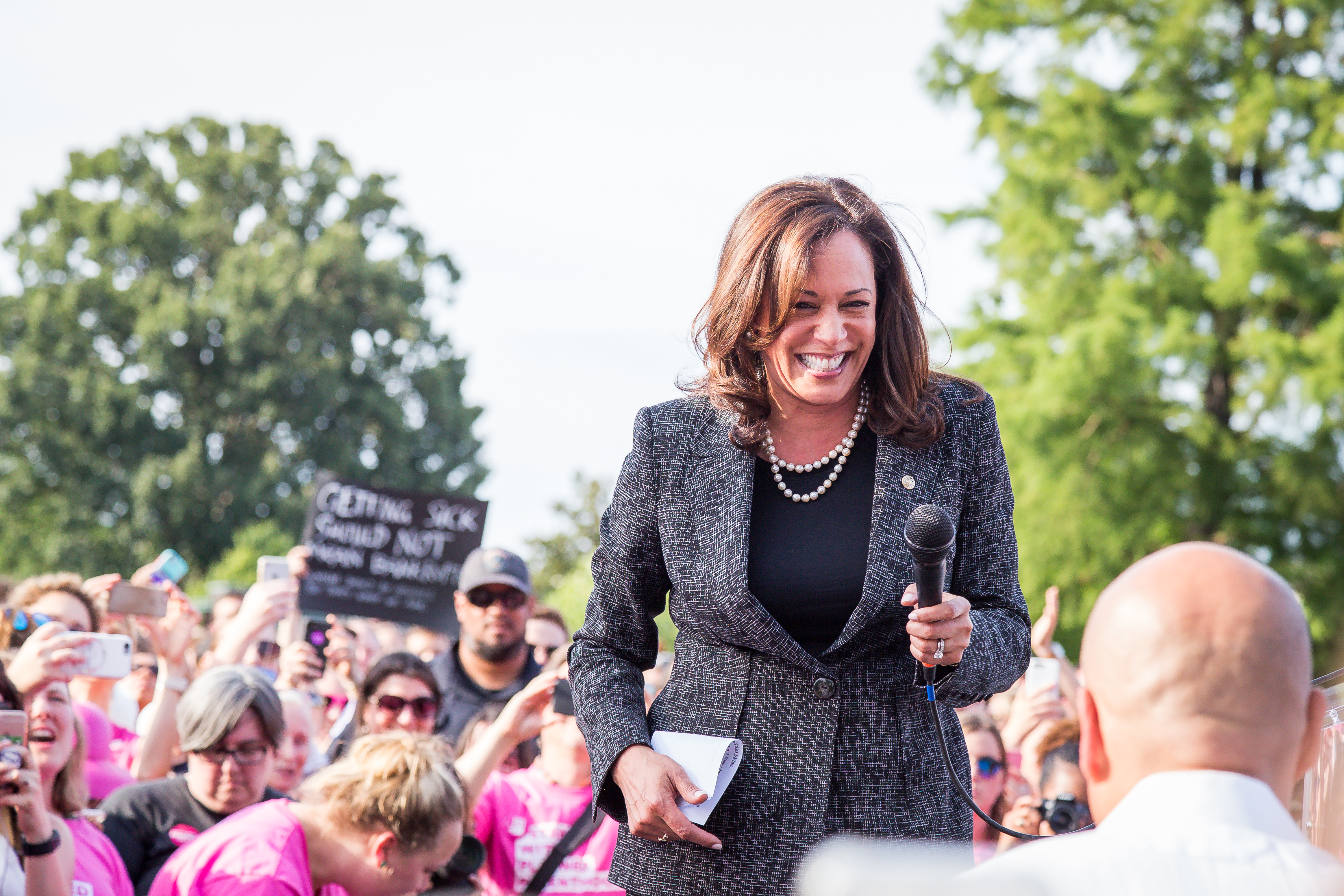
04 Oct Kamala Harris’s Actions on Sex Trafficking Speak Louder Than Words
By Dr. Kimberly Mehlman-Orozco
Recently, Kamala Harris became the first mainstream U.S. presidential candidate to publicly state she supports the decriminalization of the commercial sex industry. In an interview with the Root, the career prosecutor and junior senator from California was asked, “Do you think that sex work ought to be decriminalized?” She answered, “I think so. I do.”
Decriminalization, which is not the same as legalization, is a step in the right direction because it would help bring victims of sex trafficking out of the shadows and empower consenting sex workers to report other types of victimizations; however, Harris’s new perspective has left many scratching their heads at what prompted this about-face and whether her sentiments are genuine.
During Kamala Harris’s tenure as Attorney General of California, many victims of sex trafficking, including juveniles, were erroneously prosecuted. For example, take the case of Aarica S. On January 31, 2013, Aarica S. was arrested in Los Angeles, California. At the age of 17, she was charged with prostitution after she agreed to have unprotected sex with an undercover police officer in exchange for $60. During her court proceedings, Aarica explained that she was a victim of human trafficking, and the charges against her should be dismissed.
In support of her claim, Aarica testified that her father raped her when she was only three years old. Her childhood was harrowing from then on. At the age of 14, a friend introduced her to a pimp, who trafficked her into the commercial sex trade. After the pimp and his uncle raped her, she ran away and aborted the resulting pregnancy.
At the age of 16, another pimp recruited her. Although he gave her food and shelter, the pimp would physically abuse her if she didn’t make enough money for him. She was indoctrinated to believe that she was the “property” of her pimp. By the time of her arrest, Aarica had been trafficked by approximately 10 different pimps, running away each time the abuse became too much to bear.
At trial, Aarica testified that she didn’t have a pimp controlling her when she was arrested. After being trafficked on and off for over three years, she had been free for three months, living with her grandmother. However, since she admitted on cross-examination that she didn’t have anyone directly exploiting her at the time of her arrest, the court treated Aarica as a criminal, not as a victim. Despite the fact that the Californians Against Sexual Exploitation Act (CASE Act) states that, “Because minors are legally incapable of consenting to sexual activity, these minors are victims of human trafficking whether or not force is used,” prosecutors working under Kamala Harris, who was Attorney General at the time, zealously pursued a criminal conviction against this teenage girl.
This case is in direct contradiction to the statement Harris recently made to The Root, claiming, “I was advocating [15 years ago] that we have to stop arresting these prostitutes and start going after the johns and the pimps, because we were criminalizing the women.”
While Kamala Harris is now showing support for a promising policy to combat sex trafficking—decriminalization—it may be a day late and a dollar short, so to speak. Regardless of her position moving forward, prospective voters should not forget that for decades she has furthered the erroneous criminalization of victims and third-party businesses.

Sorry, the comment form is closed at this time.